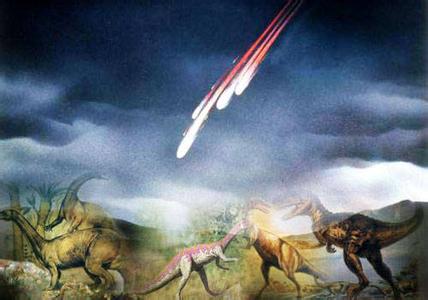You'd think that the asteroid that hit Earth 66 million years ago with enough force to wipe out the dinosaurs would be tough to sleep through. But a new study suggests that the ability to engage in extended hibernation might be what saved ancestral mammals from extinction at the end of the Cretaceous. The hypothesis is in the Proceedings of the Royal Society (B).
你可能会认为6600万年前,当小行星用足够毁灭恐龙的力量来撞击地球时,哺乳动物不可能还沉浸在睡梦中。但一项新的研究显示,哺乳动物祖先的超期休眠能力可能正是使他们免于白垩纪末期遭受灭绝的原因。这一假说发表在《英国皇家学会学报B》。
It's thought that global wildfires engulfed the planet for a year or more after the Chicxulub impact. That's a long time to stay out of harm's way. Small mammals most likely burrowed underground.
人们普遍认为,希克苏鲁伯陨石撞击地球后,地球上发生了长达一年或更长时间的全球性火灾。这就要求长期待在安全地带了。小型哺乳动物很可能潜藏在地底。

But could they last that long without coming up for air? Yes—if they were hibernating.
经过那么长的时间,它们可能不上来透口气吗?答案是肯定的——它们可能在休眠。
We know that bears can sleep through winter. But rabbit-sized Madagascar mammals called tenrecs have got that beat. Researchers tagged two dozen tenrecs with devices that recorded their body temp. And then released them back in the wild.
我们知道,熊可以睡上一整个冬天。但兔子大小的马达加斯加无尾猬的休眠时间又更胜一筹。科学家们捕获了24只无尾猬,用设备记录下它们的体温,然后将它们放回大自然。
Most of the tenrecs got killed by dogs or snakes or poachers. But a couple tunneled into the sand where they proceeded to snooze until the researchers dug them up nine months later.
大多数的无尾猬不是被狗或蛇咬死,就是被偷猎者杀死的。有对无尾猬在沙子里打了个洞,然后开始休眠,直至9个月后科学家将它们挖出。
The findings reveal that on occasion the best way to make it through a crisis is to just take a long nap.
该研究显示,有时,躲过灾难的最好方式就是睡个长觉。












